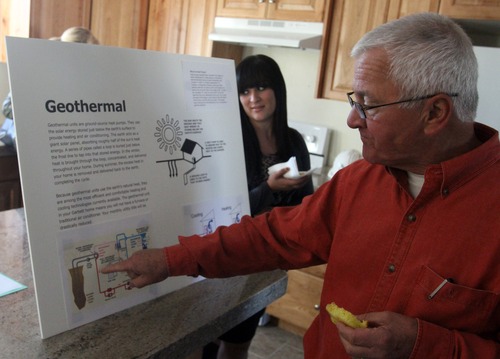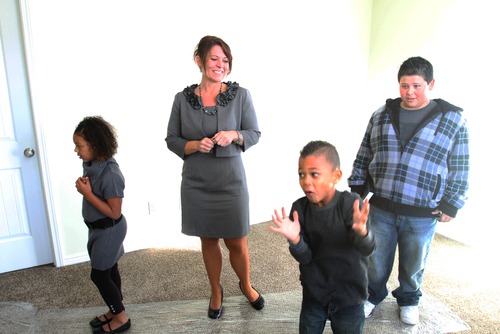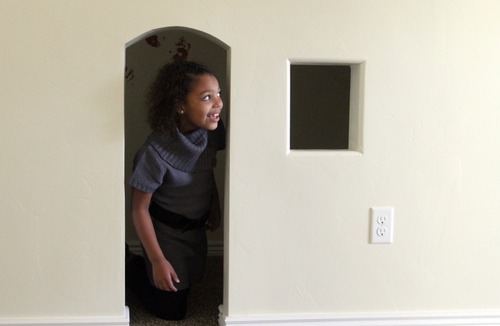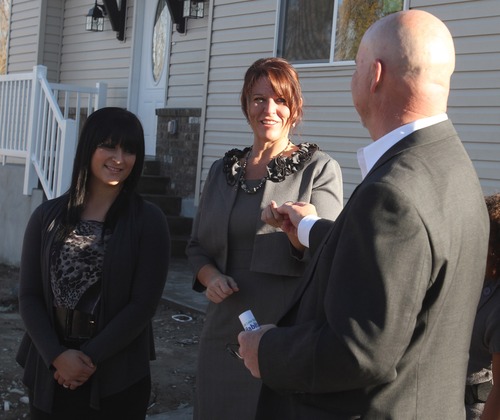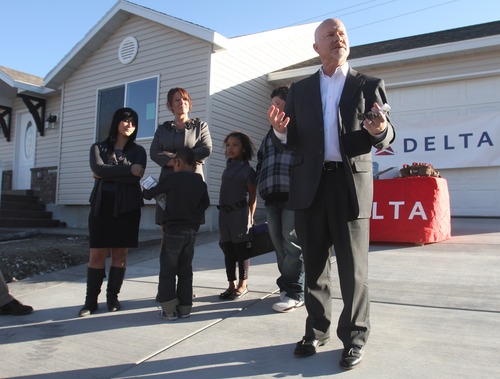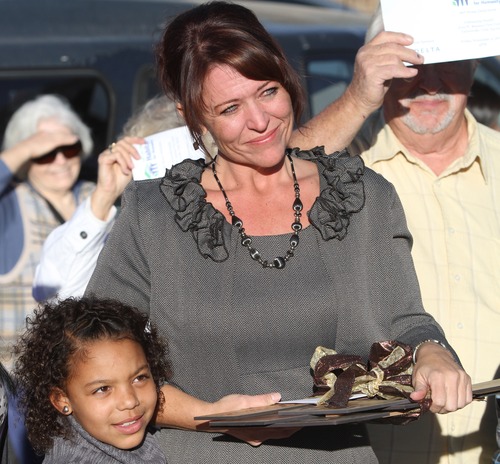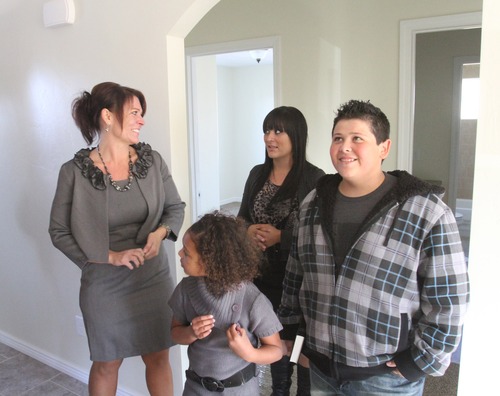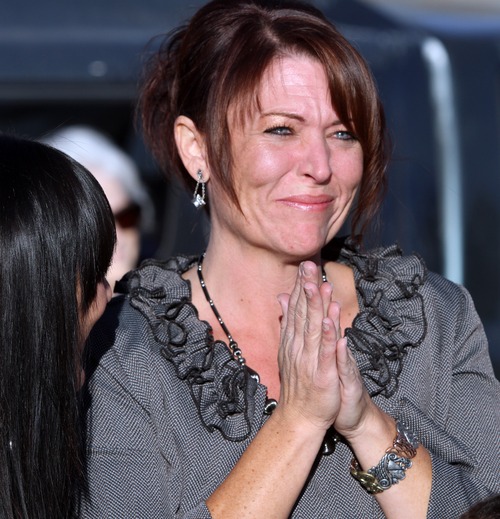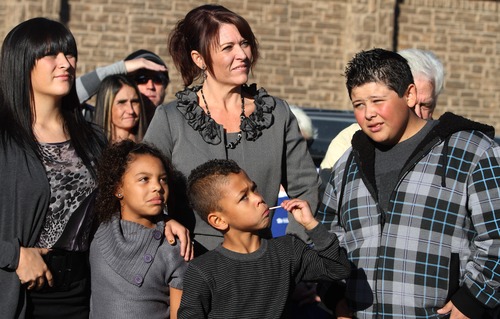This is an archived article that was published on sltrib.com in 2012, and information in the article may be outdated. It is provided only for personal research purposes and may not be reprinted.
For two years, Marcie Valenzuela and her four children have been crammed into her mother's Taylorsville home with all of the kids sleeping in one room in the basement. But in just a couple of weeks, she and the kids will be moving into a brand new home with environmentally-powered features thanks to Habitat for Humanity.
"That will be great. We will have our first Thankgsiving in our home," said the 38-year-old Valenzuela. "I'm so excited."
The nonprofit group Salt Lake Valley Habitat for Humanity on Friday unveiled the first geothermal and solar-powered home it has ever built in Utah and only the sixth such Habitat home in the entire world, said Executive Director Ed Blake.
"She's amazing," Blake said of Valenzuela. "She's worked so hard for this and is just so thankful for this. She's been out there until 11 p.m. every night working on the home to help us get it finished."
The four-bedroom, two-bathroom Taylorsville home is built with an underground geothermal system that runs a nontoxic form of glycol, a type of alcohol. In the winter, the glycol is sent to a heat pump in the home which then heats the air. In the summer, the process is reversed, which creates cool air, Blake said.
Solar panels also are installed on the roof that will produce electricity that can be stored in batteries as well as allow the family to accumulate credits for the power company.
The result of all these environmentally-powered features: total energy costs that don't go over $25 per month.
"The reality is if we can lower her monthly utility payments by a hundred dollars a month, the impact on that family is huge," Blake said.
The cost of the house has not been determined yet, he said. But Taylorsville offered the .10-acre plot to Habitat for Humanity for just $5,000. Delta Airlines paid for the materials and provided volunteers to help build it, a process that began on Sept. 11.
"Sometimes, we had flight attendants from another market come and help. We've had pilots from Arizona and flight attendants from Atlanta and California — all over the place. And they had fun [building it] quite frankly," Blake said.
Valenzuela, who works two jobs — at the state Division of Child and Family Services as a coordinator and a bartender at a local pub — doesn't get the home for free. But she does get it with a zero-interest, 30-year loan that typically amounts to a $400- to $600-per-month mortgage. She also has to put in 225 hours of sweat equity into the next Habitat for Humanity home as well as take education courses in personal budgeting and avoiding predatory lending.
Valenzuela applied for the Habitat for Humanity project more than two years ago. Recipients for homes are chosen based on income, need, current living conditions, health issues and the ability to work and pay off the loan.
Valenzuela looks forward to being able to establish roots in Taylorsville so she and her children, one of whom suffers from bipolar disorder and attends a class for students with special needs, can focus on a brighter future.
"I just encourage people to really find out about the program and the types of families they serve," she said of Habitat for Humanity. "There are so many people out there that could really benefit from the program."


